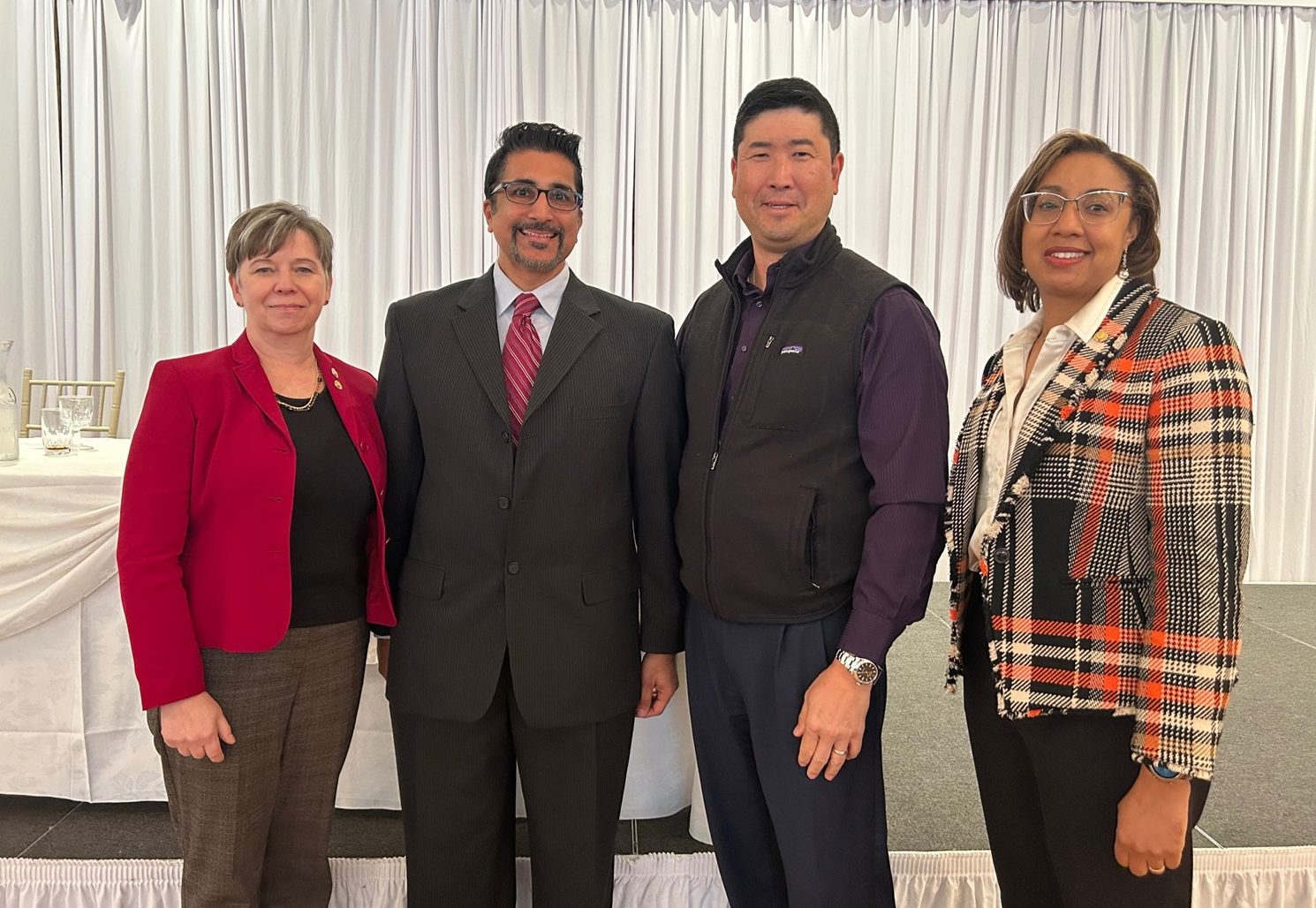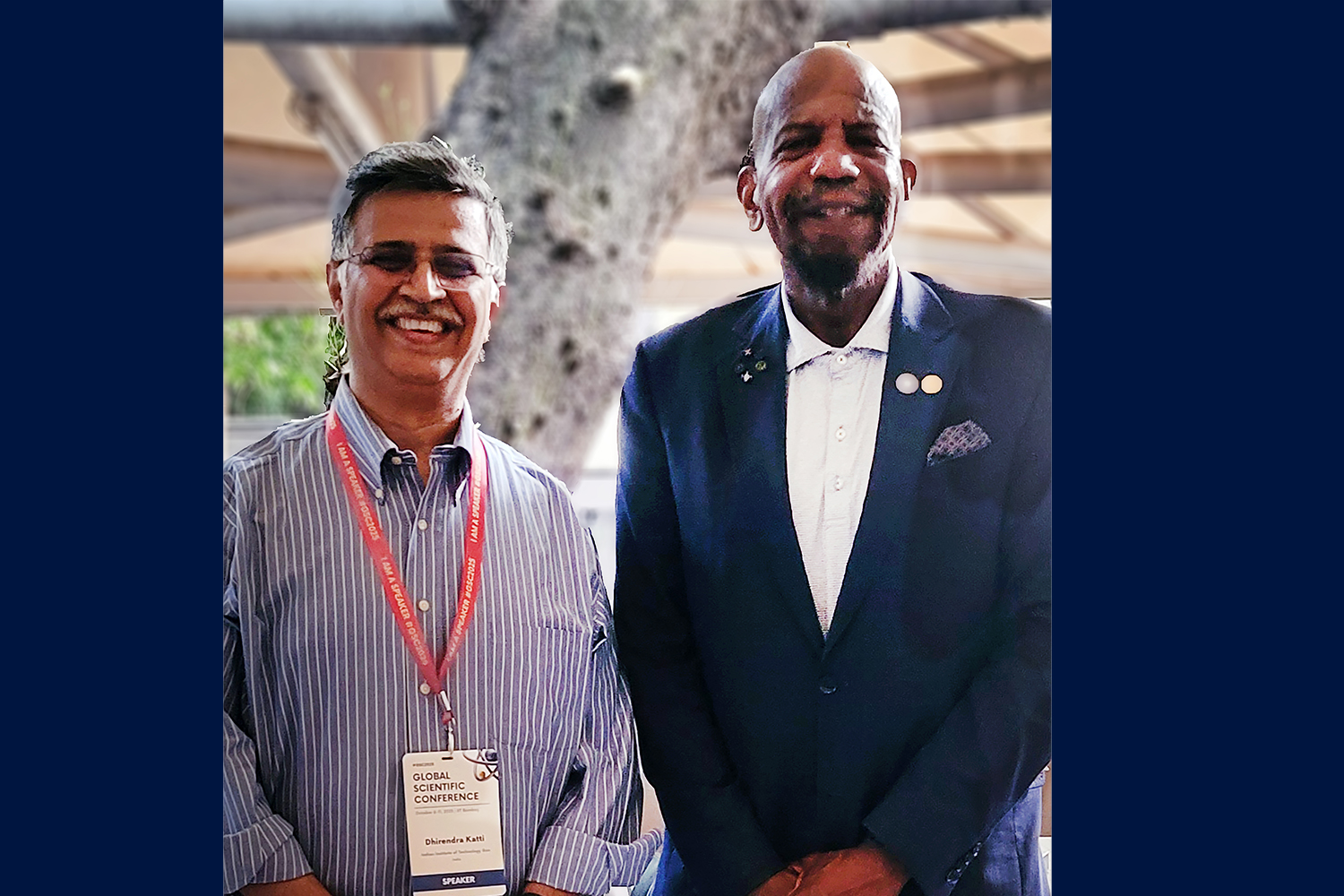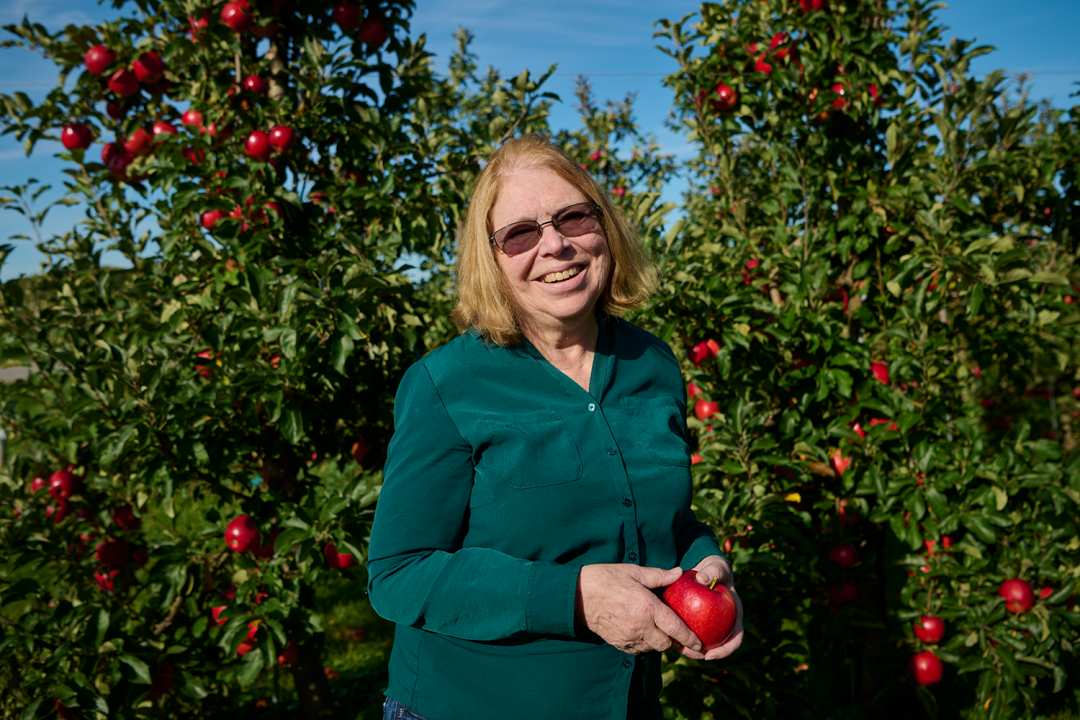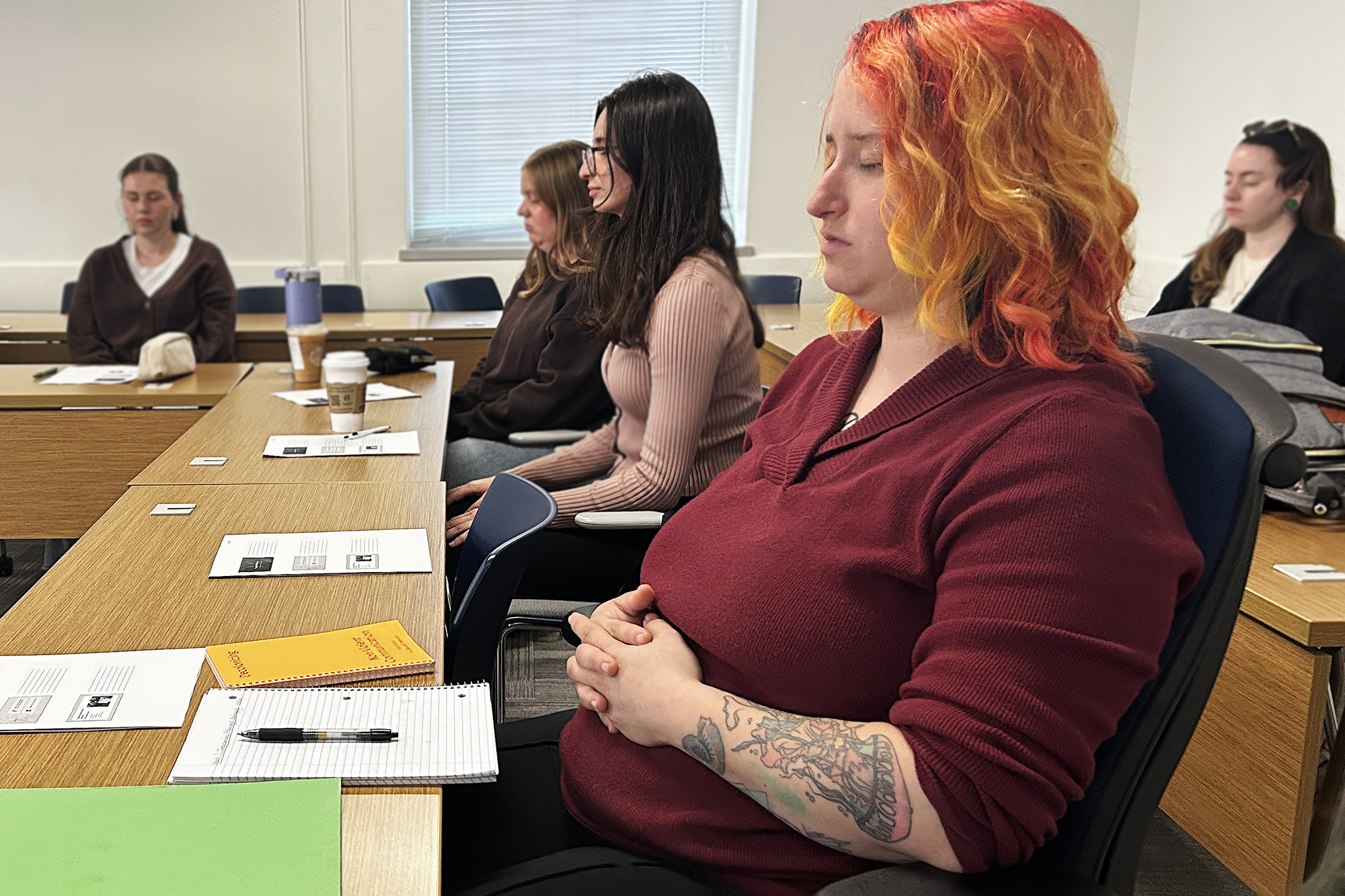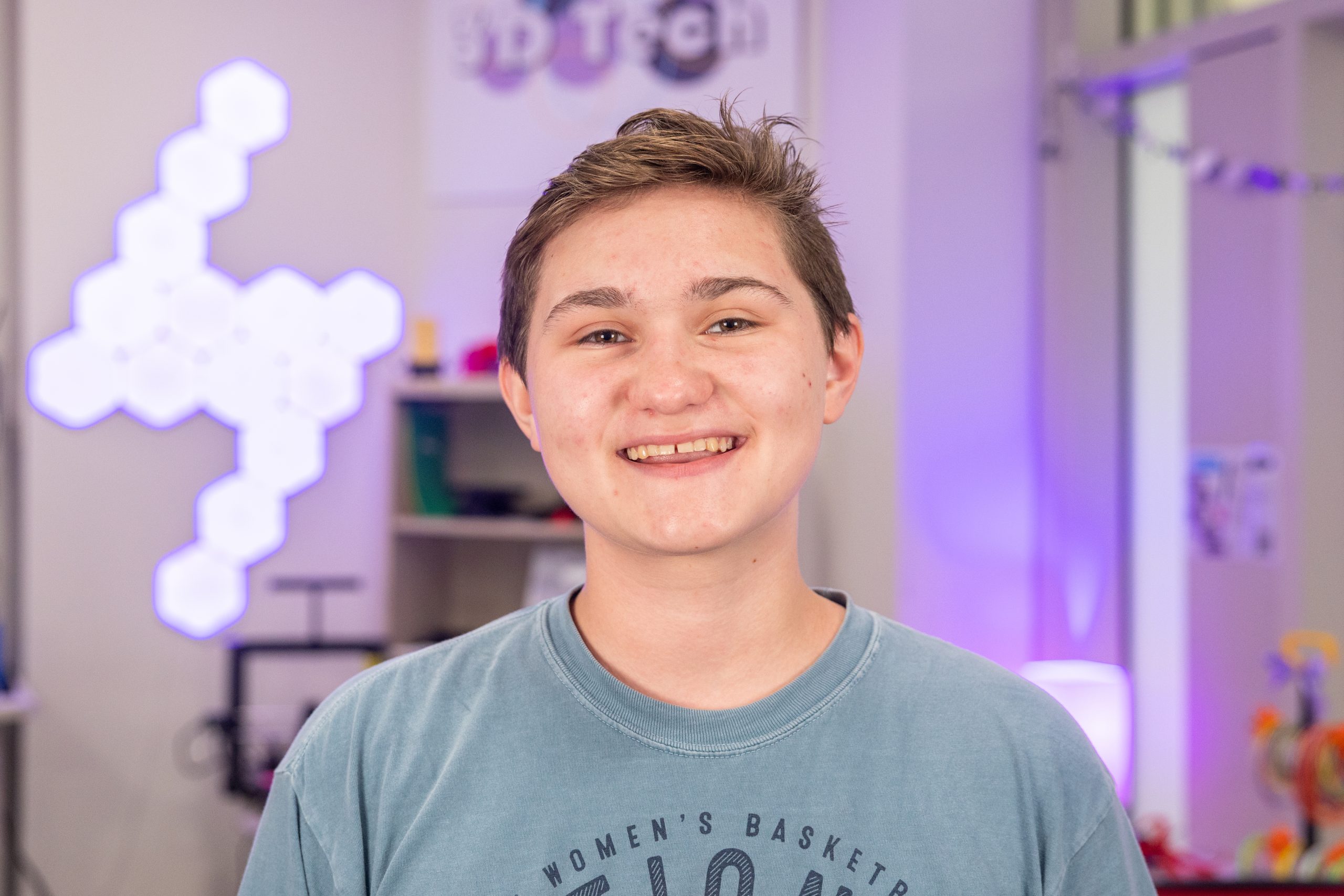UConn Creates Family Medicine Leaders
It was a special moment in Connecticut on October 30 when three proud alums of UConn School of Medicine, who are family doctors, took the stage together at the annual meeting of the CT Academy of Family Physicians.
UConn School of Medicine Class of 2004’s Dr. Kisha Davis, recently elected president-elect of the American Academy of Family Physicians (AAFP), begins her term as president in 2026, installed Class of 2000s Dr. Edmund Kim as the newly elected president of the Connecticut AFP chapter. This is Kim’s second term as CT AFP president in 12 years. Class of 1994’s Dr. Kathy Mueller, also a past two-term president of the CT AFP and now a board of director for the American Academy of Family Physicians, serves under the leadership of Davis at the AAFP and has also served with Kim on the CT AFP board for nearly 20 years.
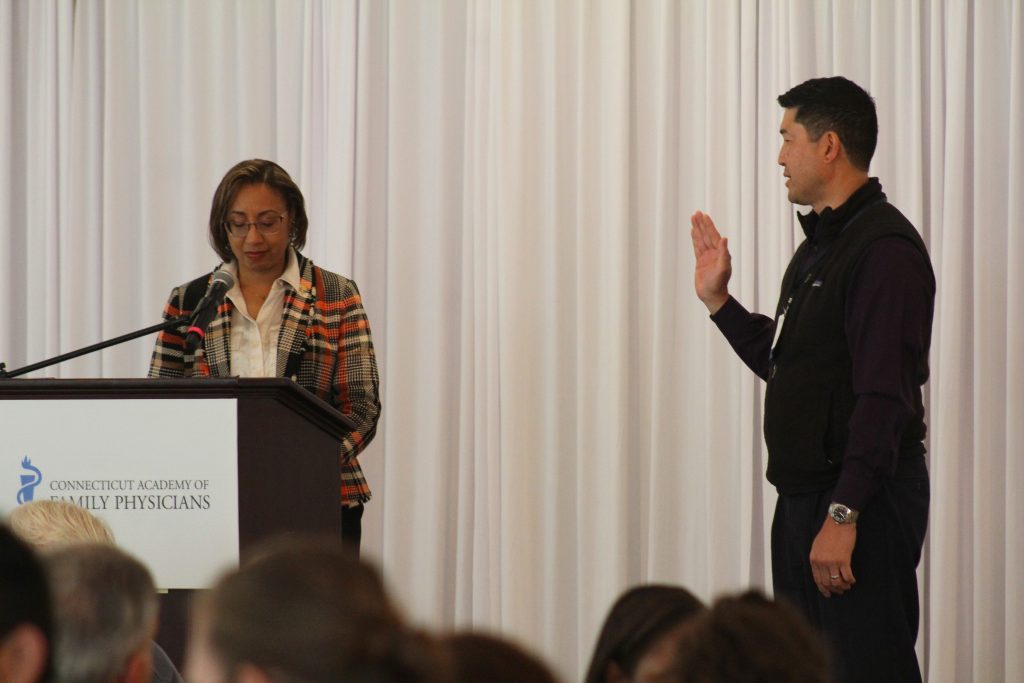
“It’s awesome, and such an honor,” shared Kim about the special moment shared by the three UConn Huskies who are now some of the key leaders for the large AFP and its local chapters representing 128,300 physicians, residents, and medical students nationwide.
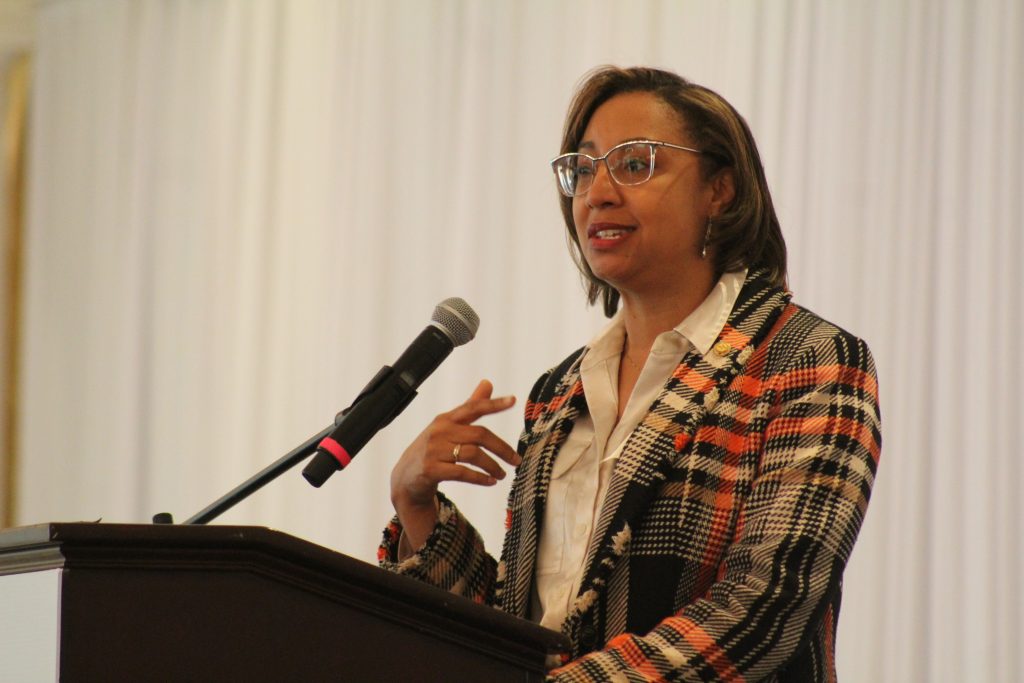
These UConn graduates crossed paths in their careers. Kim was training as chief resident of family medicine at UConn when Davis was a medical student rotating into the specialty to learn more. Mueller was a few years ahead of Kim in residency and they worked together in a private practice group in Windsor and Enfield.
“It’s very exciting,” shared Davis of Maryland. “It’s great for Connecticut to so warmly welcome me back and to install Dr. Kim as president of CT AFP.”
“I’m a family doctor because of UConn,” exclaims Davis, and both Kim and Mueller echo that inspiration too.
“Because of UConn, I stayed in Connecticut and practiced here for 28 years,” states Mueller.
“It’s really cool and exciting to see our UConn medical school graduate Dr. Kisha Davis become AAFP president-elect, Dr. Edmund Kim become president of the CT AFP, and Dr. Kathy Mueller starting her second year on the AAFP board. They have always been star students, forward thinking, and leaders,” applauds Dr. Thomas Agresta, chair of family medicine at UConn School of Medicine. “UConn well prepares our medical students and resident trainees to be doctors and future leaders. We are so proud of them and so many of our UConn graduates serving in AAFP and AFP chapter leadership roles.”
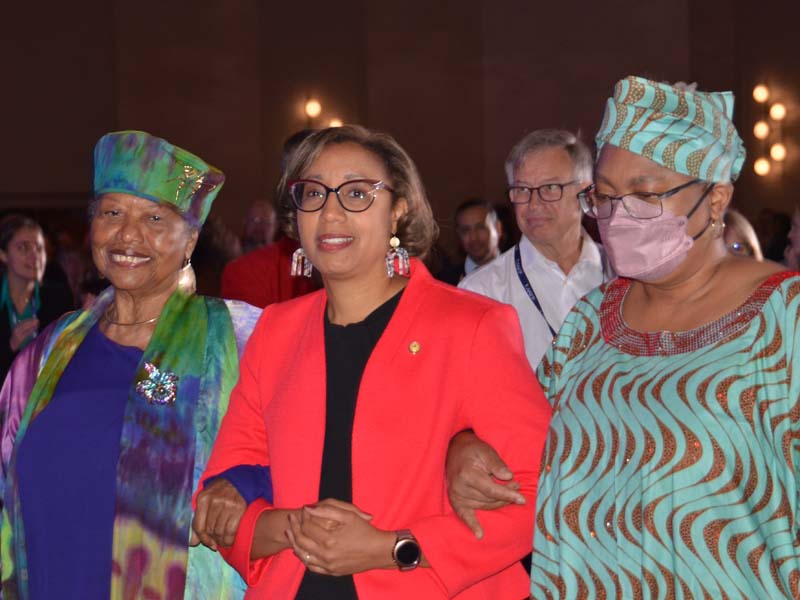
The Road to Family Medicine
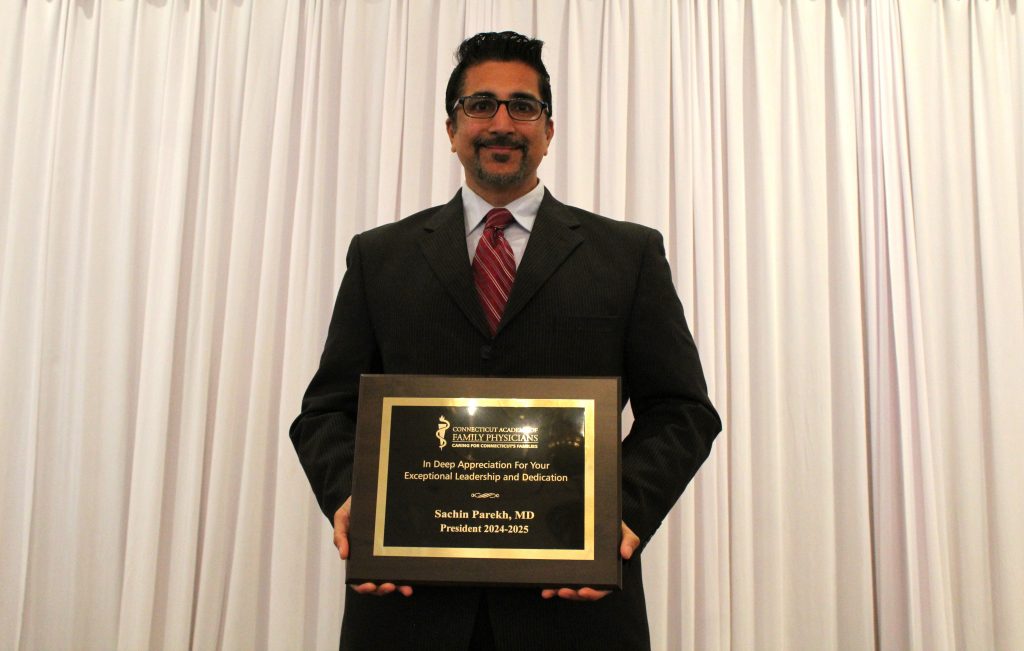
Davis and Kim both thought they wanted to be future OB/GYNs initially and they had never heard about the family medicine specialty before attending UConn’s medical school, which is also home to a family medicine residency training program. But Mueller knew she wanted to be just like her family physician early on. All are thankful they were introduced early at UConn medical school to the exciting, rewarding field during early patient care exposure experiences.
“I did a family medicine rotation during my third-year of medical school, and after a baby’s delivery I was told by the attending family medicine physician to get out of the way since the new mom from her bed couldn’t see her baby in the warmer. From that moment I wanted to do all of family medicine,” recalls Davis.
“When I started medical school, I didn’t know about family medicine either. But then I observed a family medicine doctor caring for three generations of a family – including the moment he told the family that one had terminal cancer. That’s when I knew I wanted to be the doctor for the whole family,” recounts Kim.
Davis and Kim are both grateful that they started in primary care offices during the first days of their UConn medical school experience.
“If medical students don’t get to experience that early-on, they may not realize that a specialty like family medicine is for them. This experience makes a huge difference!” says Davis who was recruited to the UConn School of Medicine and received a full scholarship leaving her without the burden of large medical school debt and the flexibility to pursue whatever specialty and career choice she loved.
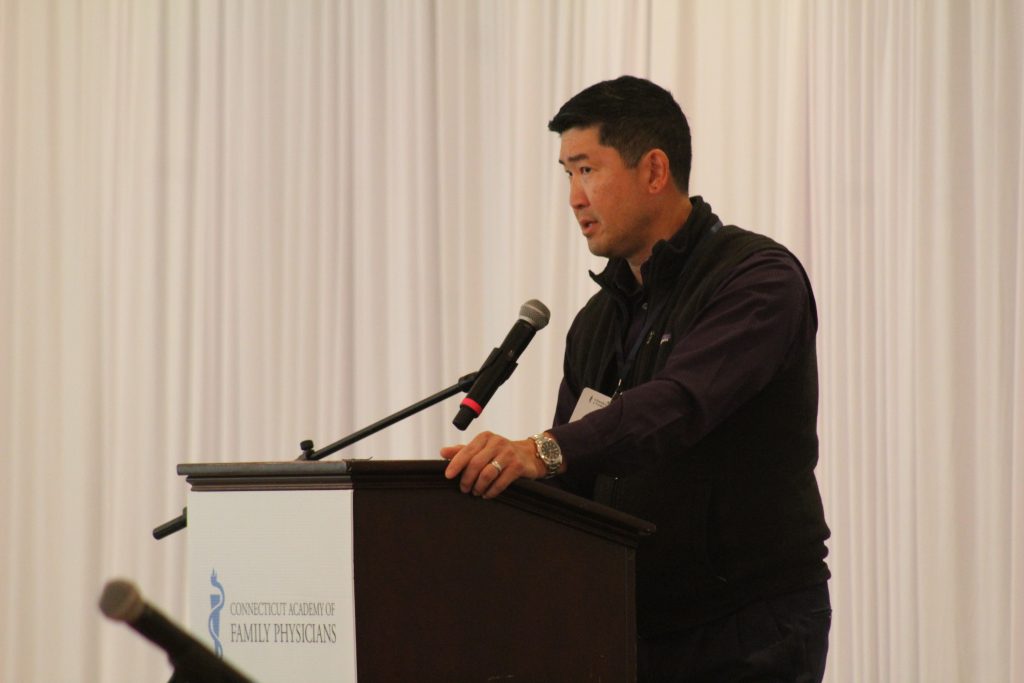
She stresses the vital importance of student scholarships, loan forgiveness programs, and incentives to help medical students make the choice to enter the primary care fields to fill major physician shortages. Nationally, data of The National Center for Health Workforce Analysis shows the United States across all specialties is facing a projected shortage by 2037 of 187,130 physicians. One of the specialties with the lowest adequate supply is family medicine.
“As a family medicine physician, you really can do it all! It’s never boring. And most of all you have joy in family medicine,” Davis wants to remind medical students everywhere. “Try to always be true to why you went into medicine in the first place.”
Davis adds, “What I loved about UConn was its Health Career Opportunities Program. Also, at UConn I was really active. I volunteered to care for underserved populations at the South Park homeless shelter clinic, the Migrant Farm Worker’s clinic, and women’s clinic. I loved serving all populations.”
“Be present and involved as there is no way to predict what it will lead to after medical school,” says Kim. “Our experiences discovering family medicine shows you never know! I wish for medical students and trainees to keep an open mind and consider primary care fields like family medicine,” as Connecticut also faces physician shortages and many doctor retirement making new family medicine experts much needed.
In fact, currently Connecticut has 640 family physicians with a projected need of 1,590. According to Agresta, data shows this trend is projected to stay similar through 2037 with the state needing to consider significant efforts to help expand the Family Medicine and Primary Care workforce.
“For me,” says Mueller, “my experience at UConn exposed me to family physicians doing so many different things in the community. Learning from family docs who served in hospital leadership, testified at the state capital, or who found their special niche in family medicine, was inspirational. You can do anything as a family physician.”
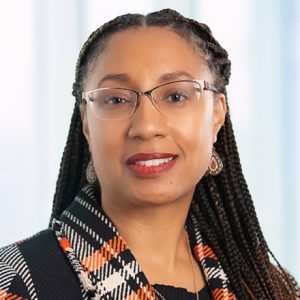
More about Dr. Kisha Davis
As a member of AAFP and the AAFP board member Davis has already been advocating on behalf of family physicians and patients to inspire positive change in the U.S. health care system. She has served on the Commission on Governmental Advocacy, as a member of the Membership Task Force, as the new physician member of the AAFP board of directors, and as convener of the 2019 National Conference of Constituency Leaders. Davis has served the Maryland Academy of Family Physicians in a variety of leadership roles, including foundation treasurer, member of the board of directors and a past president and board chair of the board of directors. She currently is the chief health officer for Montgomery County, Maryland. She previously served as Vice President of Health Equity at Aledade. Prior to joining Aledade, she served as medical director at CHI Health Care, an integrative primary care practice in Maryland. Davis was vice chair of the Medicaid and CHIP Payment and Access Commission (MACPAC), advising Congress, the Secretary of Health and Human Services and states on Medicaid policy. Davis served as a White House Fellow at the US Department of Agriculture working to strengthen the health and food safety net. Davis serves as a preceptor for the Uniformed Services Preventive Medicine Residency and is a clinical instructor at Johns Hopkins University School of Medicine.
In addition to her UConn medical degree, Davis earned her Bachelor of Science from Duke University and completed her residency at the University of Maryland where she was chief resident. She later earned a Master of Public Health from Johns Hopkins University. Davis is board certified by the American Board of Family Medicine and has the AAFP Degree of Fellow, an earned degree awarded to family physicians for distinguished service and continuing medical education.
“I have done a lot of health policy and advocacy work,” says Davis. “You are a better doctor when you get involved in advocacy and creating policy. For example, you know what it’s like to be at a patient’s bedside filling out preauthorization paperwork. Also, family medicine doctors have a way of viewing the world to try to benefit society as a whole – and how to holistically make patients and their health care system better.”
“Patients need to know who family doctors are and what we do. We care for them and their whole family,” says Davis. “We need to advocate for more family medicine physicians to be produced, for them to be valued, be respected and properly reimbursed for their team-based care.”
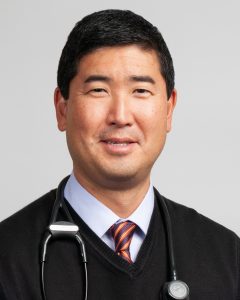
More about Dr. Ed Kim
In addition to his UConn medical degree, Kim also completed his Family Medicine residency at UConn where he served as chief resident.
Kim is a former mechanical engineer and volunteer EMT. He has worked in private practices and large health systems. He spent 12 years teaching for UConn and worked his way up to become the Family Medicine Residency Program Director. He also served as a Hospice Medical Director for six years.
Kim returned back to private practice and recently opened a practice in Guilford, Conn. While he spends half of his time seeing patients, he is a certified programmer of Epic and works to make the Electronic Health Record easier for clinicians to use.
“Advocacy for our family medicine physicians is really key,” says Kim. “As president of CT AFP I will also be working to ensure our state’s population gets cared for.”
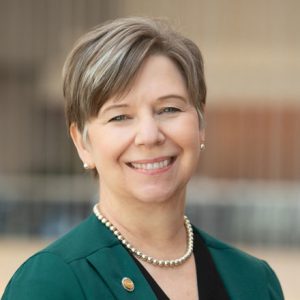
More about Dr. Kathy Mueller
After graduating from residency, Mueller practiced family medicine with obstetrics in Windsor, Conn. “During the malpractice crisis in the early 2000s, we needed to educate the legislature on the real risk of family docs needing to stop obstetrics because of skyrocketing costs. I was asked by the CT AFP to testify in front of the state legislature and to meet with the governor. They listened, and I was hooked.”
Mueller went on to spend more than two decades as part of the CT AFP board of directors.
Her leadership in Connecticut led to her serving on multiple committees at the AAFP, and on the Commission for Membership and Member Services, where she ultimately served as chair. Inspired by her work both in Connecticut and nationally, and with the support of the CT AFP, Mueller successfully ran for the AAFP Board in 2024.
Mueller leads a team to develop an Integrative Medicine and Cancer Survivorship program for the Northwell/Nuvance Health System and is part of the faculty of the family medicine residency program in New Milford.
The Future of Family Medicine
And with UConn Huskies working together locally and nationally, anything is possible.
“Kisha, if AAFP ever needs anything for CT AFP we’ll be there for you,” shares Kim.
“Thanks Ed, we will advocate together,” concludes Davis.
And what do these family doctors predict for the future of family medicine?
“There is a lot of excitement for technology helping our family physicians,” shares Davis. “It’s going to make the patient care experience better and allow the doctor to look at their patient again instead of a computer. Family medicine is preparing to build back better and shape what the future of primary care looks like for our patients, and providers and their reimbursement payments.”
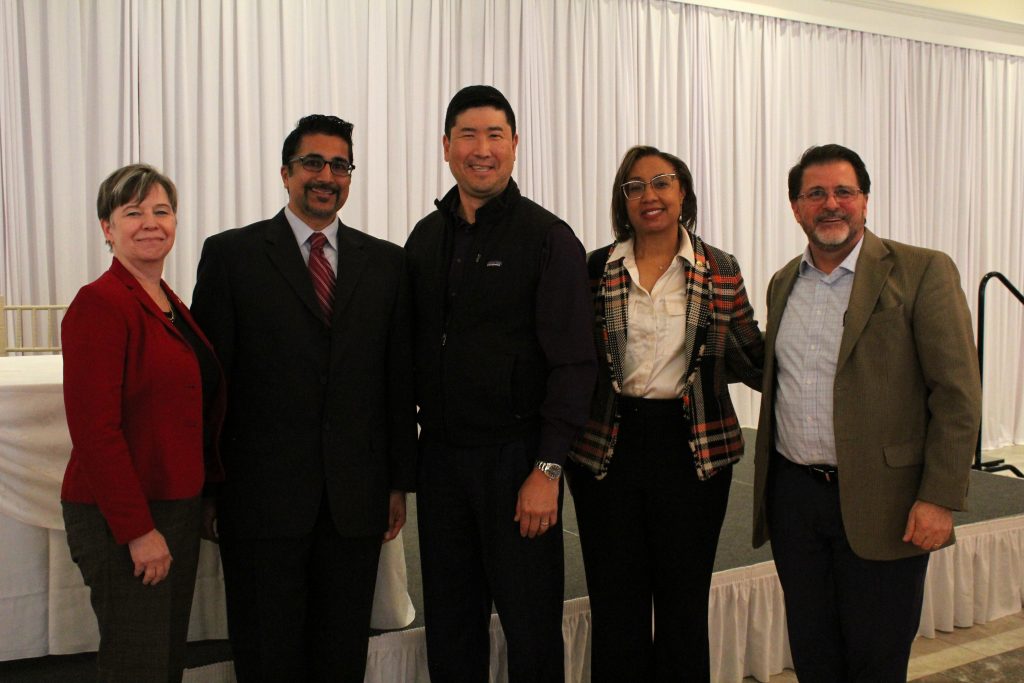
Kim absolutely agrees. He’s been doing work to advance the use of AI and how best to integrate it into the primary care doctor’s office so physicians, staff, and patients can all benefit from it. One example is the DAX Copilot tool that can be used on provider cell phones to help listen-in and act as a virtual scribe during office visits.
Mueller states, “Family medicine has claimed a very prominent seat at the table as we determine how and where this technology expands in healthcare. We need to make sure that AI helps us achieve our ultimate goal – to provide compassionate, comprehensive care to our patients.”
“If we reduce the paperwork burden on physicians that will be key for the future. We are working to bring the joy of medicine back to our doctors. AI has already begun bringing so much joy back already. A lot more technology is coming, and we are working to harness it,” concludes Kim.
UConn’s Chair of Family Medicine Agresta agrees.
“Family medicine is all about our trusted relationships with our families, and we are going to need to be continuous learners and use the latest technological tools to not only make us productive physicians, but also enhance patient care,” says Agresta who has the privilege of caring for the same families, generations later, for over 35 years as a proud UConn family doctor.
Agresta concludes, “Our goal in family medicine is to be high-tech but remain high-touch with our patients.”
Latest UConn Today
- UConn Professor Sir Cato T. Laurencin Delivers Plenary Lecture at the ACS Global Scientific ConferenceLaurencin traveled to Mumbai, India to serve as the Plenary Speaker at the American Chemical Society (ACS) Global Scientific Conference.
- Meet the Undergraduate: Iris Yu ‘26 (CLAS, SFA)Yu demonstrates her creativity through diverse artwork depicting the visual culture of the Asian body
- UConn Magazine: Inventor of your Next Favorite AppleAll hail Snap Dragons and Autumn Crisps: What it means to be queen of the fruit breeding universe
- Finding Presence: Using Mindfulness to Transform Social Work Education at UConn"Social workers carry the world’s challenges on their shoulders," says Associate Professor and course instructor Caitlin Elsaesser. "By practicing mindfulness—an energy of awareness—we nurture the presence and compassion that make transformative healing and advocacy possible."
- Tales From the CollectionsCollecting, skinning, and skeletonizing – for science!
- Meet the Undergraduate: Liam Tyler ‘28 (CLAS)Inventing a smart solution for a perennial problem of dorm living



